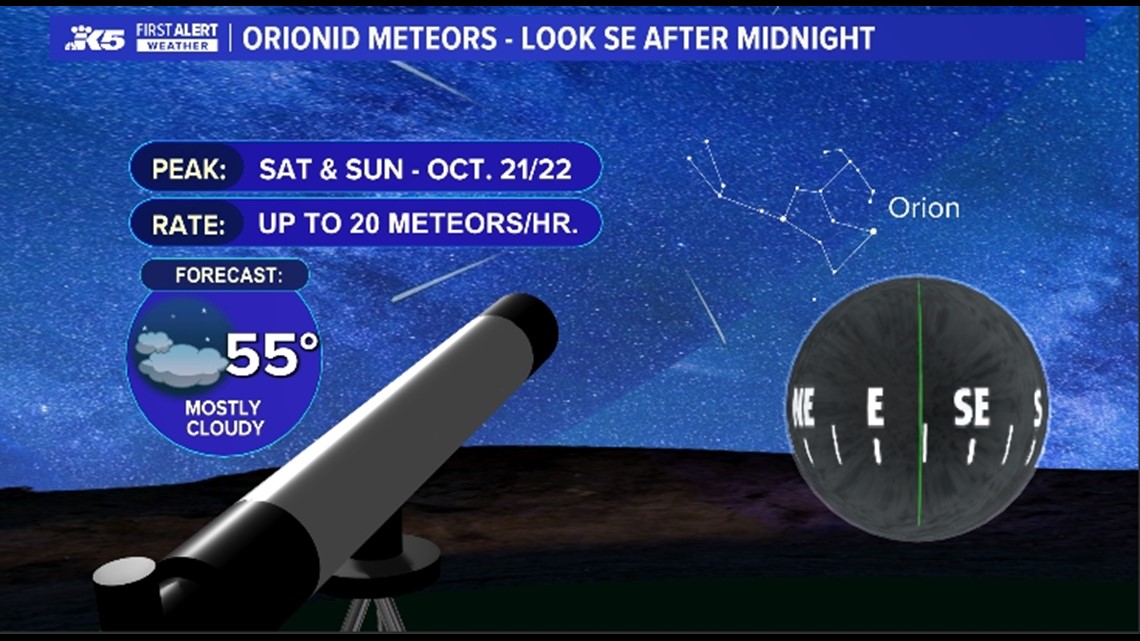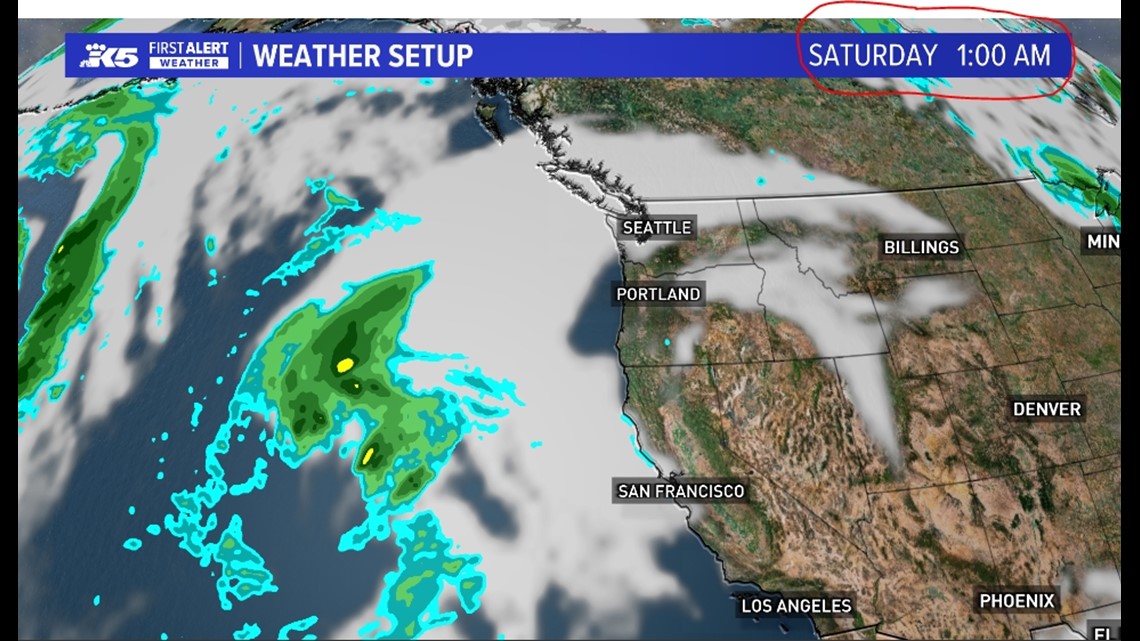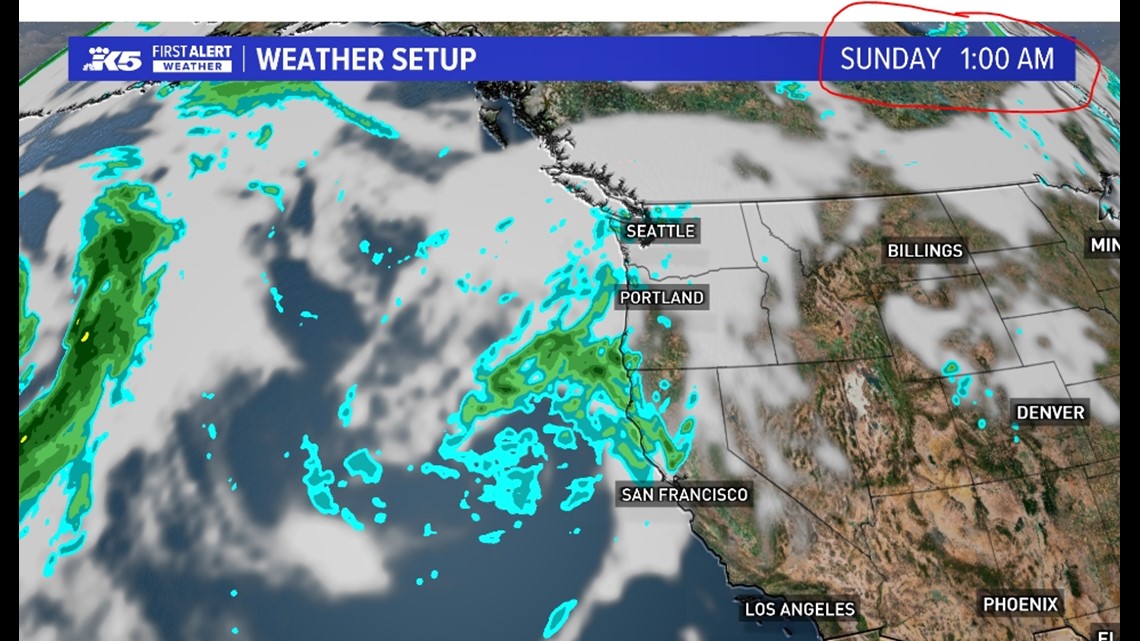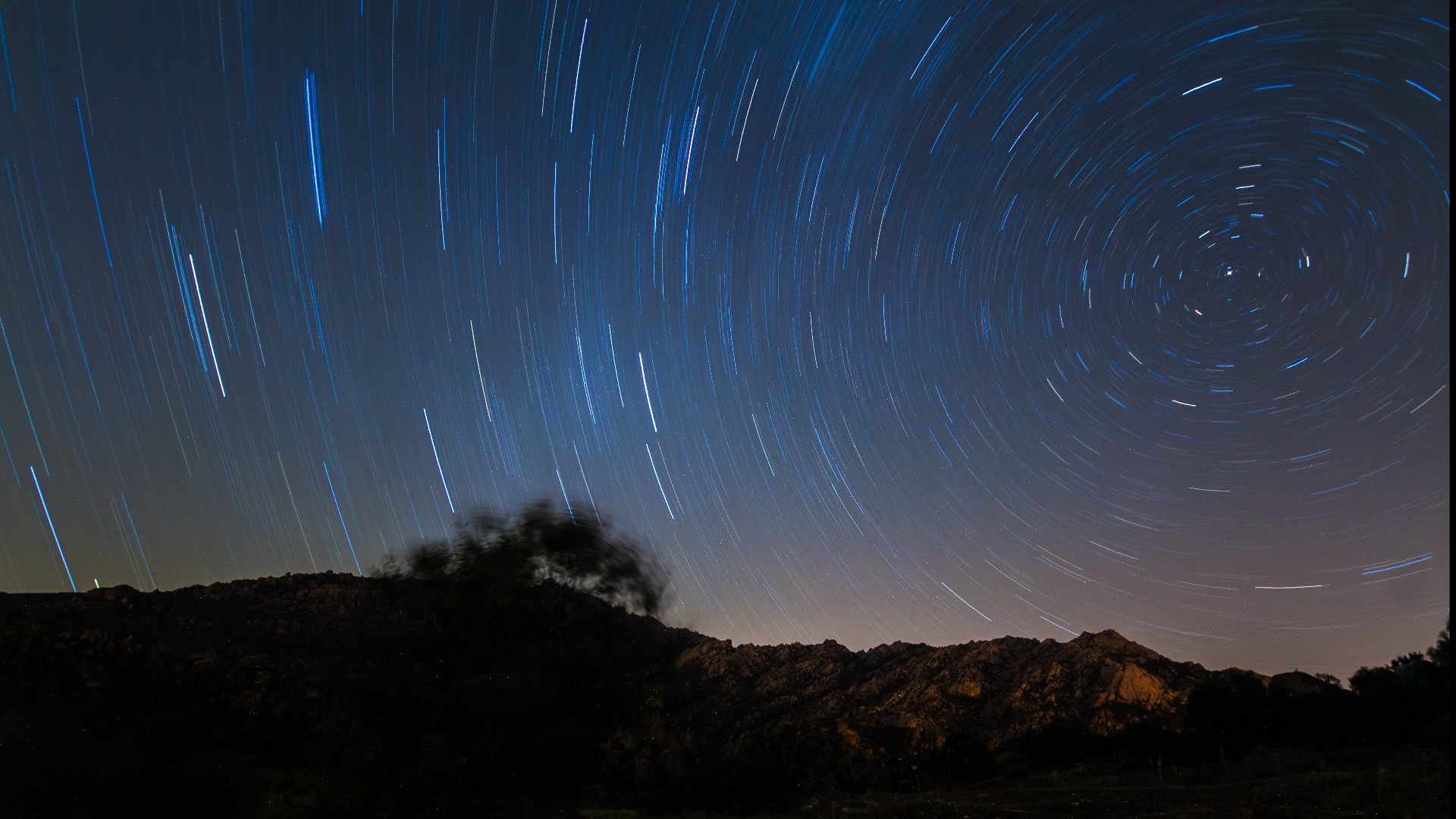SEATTLE — The Orionid meteor shower will peak this weekend. However, stargazers in Washington will have some overcast conditions to contend with if they want to catch it.
According to NASA, meteors are leftover comet particles from bits of broken asteroids. Comets come around the sun and leave dusty trails in their wake. The Earth then passes through the debris trails that collide with and disintegrate in our atmosphere.
The Orionid meteor shower originates from the comet 1P/Halley. When Halley returns to the inner solar system, it sheds ice and rocky dust into space. The dust grains become the Orionids if the dust collides with the Earth's atmosphere in October. If the dust collides in May, they are called the Eta Aquarids, according to NASA.


Although the shower peaks on Sunday, due to cloud cover, the best opportunity for Washington stargazers to spot some meteors will actually come on Saturday at around 2 a.m. Stargazers should turn their attention to the southeast.




People in the south and eastern Washington will have the best opportunity to stargaze.
Spots to stargaze:
Sunrise Picnic Area - Mount Rainier National Park
Mount Rainier National Park is a fan-favorite for watching another popular meteor shower: The Perseids. Once at the Sunrise parking lot, the main trailhead is on the right side of the parking lot between the restrooms and the sunrise day lodge. The park asks that people stay on paths to help protect plants and wildflowers. Pets on a leash are allowed in the picnic area but not on any trails. This is a popular spot to watch the shower, so plan to get there early.
Pearrygin Lake State Park - Winthrop
The state park near Winthrop is in one of the darkest places in Washington state. For hardcore stargazers, the Methow Valley is an excellent spot. According to the Methow Dark Sky Coalition, the park has "pretty good visibility" in all directions and the campground is great for families.
What to bring when going stargazing
Being out in nature at night requires some preparation and forethinking to make sure everything goes smoothly.
Here's what people should bring for night hiking, and hiking in general, according to the Washington Trails Association:
- A detailed map of the area and a compass
- Plenty of water
- Extra food
- Rain gear and insulation
- Waterproof matches and a dry or waterproof striker
- A first-aid kit
- Knife or a multitool
- A headlamp or flashlight with extra batteries and lightbulbs
- Emergency shelter
- Eye protection (if starting the hike in the daytime)
People should also be sure to tell a friend or family member where they're headed and when they expect to be back.

